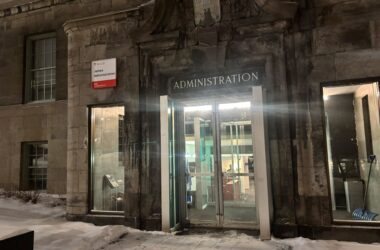Universities across Quebec and Montreal have experienced a significant drop in international student applications for the Fall 2025 semester. Concordia University and Université de Montréal have seen a 37 per cent decrease in international student applications, while McGill University has seen a 22 per cent drop.
McGill’s student body is made up of a diverse range of cultural and ethnic backgrounds. According to the Fall 2024 Admissions Profile, 2,023, or 28.04 per cent, of new enrolments McGill accepted were international students, a figure consistent with previous years.
In 2024, Immigration, Refugees, and Citizenship Canada announced a target cap of 485,000 on new international study permits. This measure alone is reported to have decreased the number of international students by 40 per cent across Canada. In 2025, the federal government sought to decrease the number of new permits issued by another 10 per cent, bringing the figure down to 437,000 permits.
Moreover, in December 2024, the Quebec government passed Bill 74, which sought to give education ministers and higher education ministers more control over international student regulations. Quebec Premier François Legault, using the newly adopted bill, announced in February that Quebec universities would not be permitted to receive more international students in 2025 than they did in 2024. Quebec’s Minister of Immigration, Francization and Integration Jean-François Roberge defended Legault’s decision, claiming Bill 74 would contribute to better consultation processes across Quebec’s higher education network.
Furthermore, Decree 155-2025, which Bill 74 permitted to be put forward, specifies that the Quebec government did not outright cap international student permits. Instead, each university listed by the decree, including McGill, has been individually assigned a maximum quota of permits for study purposes, based on the different academic programs they offer.
McGill’s Annual Report on Enrolment and Strategic Enrolment Management details how McGill is seeking to “maintain international student enrolment at 25 to 30 per cent of the total undergraduate population.”
University leaders have emphasized the loss of international talent in the province occurring with Quebec’s diminishing international standing as study permit access decreases. As these leaders have argued, a decrease in talented students also marks a decrease in their ability to attract high-calibre staff and researchers to their faculties.
In a written statement to The Tribune, Students’ Society of McGill University (SSMU) Vice President University Affairs Susan Aloudat maintained that McGill’s drop in international students’ enrolment does not affect SSMU’s administration or financing.
“Day to day operations of SSMU have no changes from previous years,” Aloudat wrote. “Operating fees are charged and services are provided homogeneously across the membership and are unaffected by student status enrolment [whether] they are international or domestic.”
In a statement to The Tribune, the McGill Media Relations Office (MRO) explained that the Quebec and federal governments’ lack of transparency regarding study permit quotas will pose a challenge to McGill’s administration.
“Introduced without consultation or coordination with the academic sector, these changes have created persistent instability in the management of student immigration,” the MRO wrote.
Wyatt Hogan, U1 Engineering, highlighted in an interview with The Tribune that uncertainty around the French language requirement at universities in Quebec is a factor which may deter international students from choosing to enroll at McGill.
“The French language requirement can be difficult to build around,” Hogan said. “French is an extremely useful skill to learn, but when students compare universities and see [that] they have to take a full additional class, it can be worrying.”
Hogan also emphasized his appreciation for the vibrant international student community at McGill.
“It’s very welcoming, with many events for students and international students to get to know and relate to each other,” he said.









